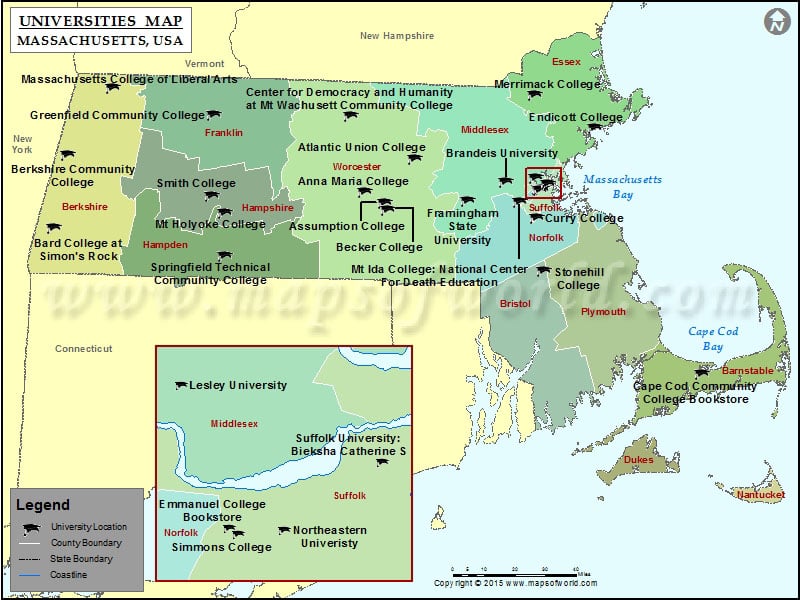Navigating the Landscape of Higher Education: A Comprehensive Guide to Colorado Colleges
Related Articles: Navigating the Landscape of Higher Education: A Comprehensive Guide to Colorado Colleges
Introduction
In this auspicious occasion, we are delighted to delve into the intriguing topic related to Navigating the Landscape of Higher Education: A Comprehensive Guide to Colorado Colleges. Let’s weave interesting information and offer fresh perspectives to the readers.
Table of Content
Navigating the Landscape of Higher Education: A Comprehensive Guide to Colorado Colleges

Colorado, known for its stunning natural beauty and vibrant cultural scene, also boasts a diverse and robust higher education system. With a network of public and private institutions spanning the state, choosing the right college can feel like navigating a vast and complex landscape. This guide provides a comprehensive overview of Colorado’s colleges, highlighting their unique offerings and the resources available to help students make informed decisions.
Mapping the Educational Landscape:
A Colorado colleges map, either physical or digital, serves as a valuable tool for visualizing the state’s educational landscape. It allows prospective students and their families to:
- Identify institutions geographically: The map provides a visual representation of the location of colleges and universities across the state, from bustling urban centers to picturesque mountain towns.
- Explore different types of institutions: The map can distinguish between public and private colleges, community colleges, and specialized institutions like art schools or technical colleges.
- Gain insights into campus environments: By visually representing the proximity of colleges to urban areas, natural landscapes, and cultural attractions, the map provides a glimpse into the surrounding environment and potential lifestyle choices.
Understanding the Variety of Institutions:
Public Universities:
- University of Colorado System: The University of Colorado system comprises four flagship institutions: CU Boulder, CU Denver, CU Colorado Springs, and CU Anschutz Medical Campus. These universities offer a wide range of undergraduate and graduate programs, renowned research opportunities, and strong alumni networks.
- Colorado State University System: CSU System includes Colorado State University (Fort Collins), CSU Pueblo, and CSU Global. These institutions are known for their focus on STEM fields, agricultural sciences, and online education.
- Metropolitan State University of Denver: This public university offers affordable and accessible education, with a strong focus on serving the needs of working adults.
Private Universities:
- University of Denver: A prestigious private university located in Denver, DU offers a comprehensive range of undergraduate and graduate programs, including strong business, law, and international studies programs.
- Colorado College: Located in Colorado Springs, CC is a highly selective liberal arts college known for its unique block plan academic calendar and strong emphasis on undergraduate research.
- Regis University: A Jesuit university in Denver, Regis offers a broad range of programs, including business, nursing, and education, with a strong commitment to service and social justice.
Community Colleges:
- Colorado Community College System: This system comprises 13 community colleges across the state, offering affordable associate degrees, certificates, and workforce training programs. Community colleges provide a pathway to transfer to four-year institutions and offer a wide range of career-focused programs.
Specialized Institutions:
- Art Schools: Colorado boasts several renowned art schools, including the Rocky Mountain College of Art and Design (RMCAD) in Denver and the Colorado Institute of Art (CIA) in Denver and Colorado Springs.
- Technical Colleges: Institutions like the Community College of Denver (CCD) and the Colorado Technical University (CTU) offer specialized training programs in fields such as engineering, technology, and healthcare.
Resources for Choosing the Right College:
- College Navigator: A free online database from the U.S. Department of Education, College Navigator provides comprehensive information on colleges and universities across the country, including admissions data, financial aid options, and program offerings.
- Colorado Department of Higher Education: The Colorado Department of Higher Education (CDHE) offers resources for students, including information on financial aid, scholarships, and transfer pathways.
- College and Career Counselors: High school counselors and college advisors can provide personalized guidance and support throughout the college application process.
- College Fairs and Events: Attending college fairs and open houses allows students to interact with representatives from various institutions, gather information, and explore campus environments.
Frequently Asked Questions about Colorado Colleges:
1. What are the admission requirements for Colorado colleges?
Admission requirements vary depending on the institution. Generally, colleges require a high school diploma or equivalent, standardized test scores (SAT or ACT), and a strong academic record. Some institutions may also require essays, letters of recommendation, and interviews.
2. What are the tuition and fees for Colorado colleges?
Tuition and fees vary significantly based on the type of institution (public or private), residency status, and program of study. Public colleges generally have lower tuition rates for in-state residents.
3. What financial aid options are available for Colorado students?
Colorado offers a variety of financial aid options, including scholarships, grants, loans, and work-study programs. The FAFSA (Free Application for Federal Student Aid) is the primary application for federal financial aid, while the CSS Profile is used by some private colleges.
4. What are the best colleges in Colorado for specific majors?
Colorado colleges excel in various fields, including engineering, business, healthcare, and the arts. Researching college rankings, program reviews, and faculty expertise can help students identify institutions that align with their academic interests.
5. What are the career prospects for graduates of Colorado colleges?
Colorado’s strong economy and diverse industries offer graduates a wide range of career opportunities. The state is home to major companies in fields such as technology, healthcare, energy, and tourism.
Tips for Choosing the Right College:
- Identify your academic interests and career goals: Consider your passions, strengths, and future aspirations to narrow down your college search.
- Visit campuses: Experiencing the campus environment firsthand can provide valuable insights into the culture, facilities, and student life.
- Talk to current students: Connect with students at the colleges you are considering to gain firsthand perspectives on academic programs, faculty, and student life.
- Compare financial aid packages: Evaluate the cost of attendance and financial aid options to make an informed decision about affordability.
- Trust your gut feeling: Ultimately, choose the college that feels like the best fit for your individual needs and aspirations.
Conclusion:
Navigating the complex landscape of Colorado colleges requires careful consideration and informed decision-making. By utilizing resources like college maps, exploring diverse institutions, and seeking guidance from experts, students can find the perfect college to launch their academic journey and achieve their educational goals. The vast array of educational opportunities in Colorado empowers students to pursue their passions, develop their skills, and contribute to the state’s vibrant and thriving community.








Closure
Thus, we hope this article has provided valuable insights into Navigating the Landscape of Higher Education: A Comprehensive Guide to Colorado Colleges. We hope you find this article informative and beneficial. See you in our next article!